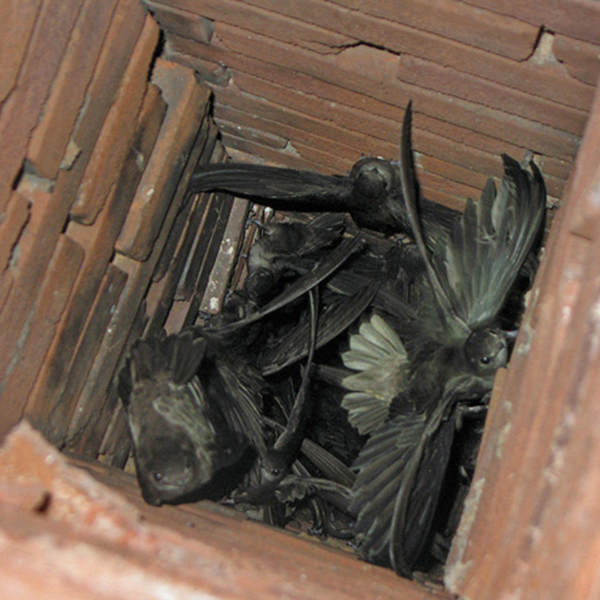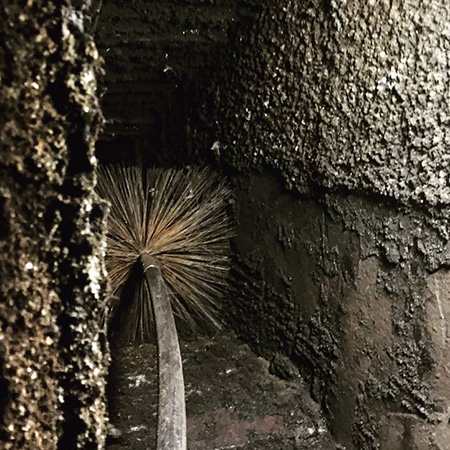- PENSACOLA SHOWROOM: 7555 Highway 98 West, Suite A, Pensacola, FL 32506
- DESTIN SHOWROOM: 36054 Emerald Coast Pkwy #100, Destin, FL 32541
Chimneys may only be used at certain times of the year, but issues can develop with them at any time. Doodlebuggers Fireplace, Grill & Outdoor Store of Pensacola, FL, and Destin, FL, would like to share some tips for addressing issues that we regularly see during the summer in our customers’ chimneys.
 1. Obstructions in the flue
1. Obstructions in the flueA chimney is a two-way street: smoke goes out, and debris can come in if you don’t have a secure chimney cap or flue cover. Typical debris includes leaves and twigs from nearby trees, along with the nesting materials of birds, squirrels and other small animals. All this material will narrow the flue and can cause smoke, carbon monoxide and other toxins
to back up into your home. Summer is a good time to have your chimney professionally cleaned. It’s also a good time to have your chimney cap repaired or replaced or have a new cap installed for the first time. This is the only sure way to protect against outside materials.
When the temperature heats up, you may begin to notice odors coming from your fireplace. In most cases, this is caused by excess creosote and soot in the flue that needs to be cleaned out. The level of heat and humidity will affect how much odor is being produced. Closing the fireplace damper can help, but it won’t resolve the problem. As with debris obstructions, creosote should be removed regularly from your chimney flue – and not just because it’s smelly, but because it’s also dangerous.
A variety of weather events can negatively affect chimneys. These include hail storms, lightning strikes and powerful winds. In Florida, we have our share of summer storms, and they regularly cause damage to chimneys. Key areas to check following a heavy storm include:
It’s always a good idea to schedule a chimney inspection after a major weather event, even if you don’t see obvious signs of chimney damage. A good inspector can see things you can’t and knows how to quickly address any kind of damage or malfunction.
 4. Flammable creosote buildups
4. Flammable creosote buildupsThe biggest problem with creosote is that it’s highly flammable. In fact, fire-safety agencies throughout the U.S. have pointed to creosote as the primary cause of chimney fires. Creosote builds up every time a wood fireplace is used. The substance can be sticky, puffy or solid as it clings to the walls of the chimney liner. Professional chimney sweeps have the tools and training to safely remove creosote and soot (and the above-mentioned debris) to significantly reduce the chance of a chimney fire at your home.
Doodlebuggers specializes in chimney inspections, chimney repairs and chimney cleaning.
We’re your trusted partners in addressing common summer chimney issues and keeping your chimney safe and efficient all year long.
Speak with a chimney expert today at 850-477-1151 in Pensacola, FL, or at 850-243-0154 in the Destin, FL, area. You can also get in touch with our handy contact form.